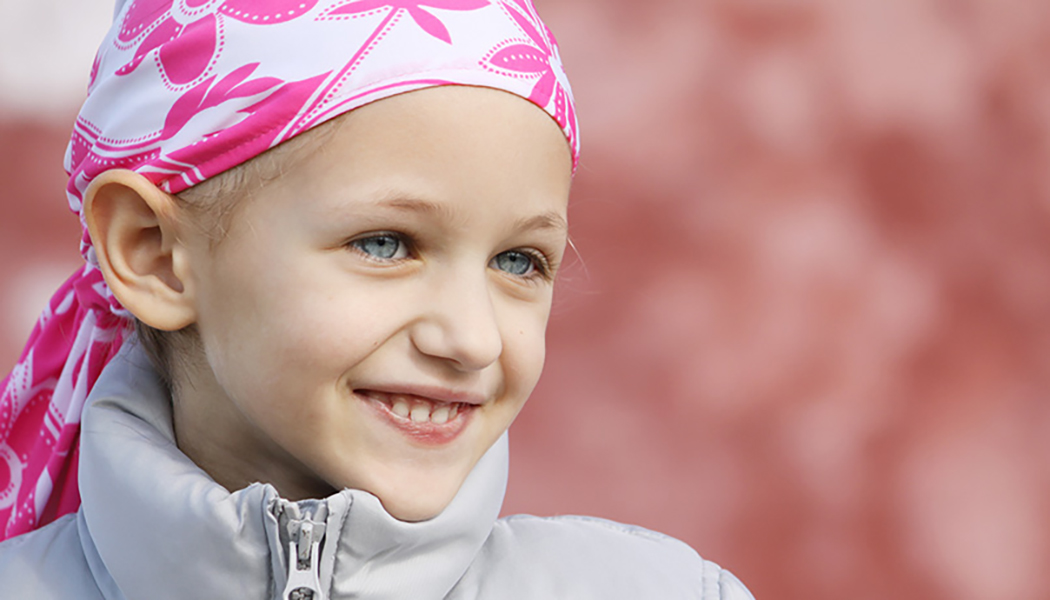Pediatric Cancer Facts and the Need for Improved Treatment

September is childhood (or pediatric) cancer awareness month. While all cancers are painful to both the patient, and their loved ones, perhaps no cancer has a more devastating impact on the patient, or his/her family unit, than pediatric cancer.
Cancer is the leading cause of death among children under the age of 14. Sadly, over 11,000 children in the United States are expected to be diagnosed with cancer and 1,190 children under the age of 15 are expected to die of cancer this year.
The most common forms of childhood cancers are blood and neurological cancers. Blood cancers account for over a third of all pediatric cancers, with Leukemias accounting for 28% of childhood cancer, Non-Hodgkin lymphoma 5% and Hodgkin lymphoma 3%. Brain and Neuroblastomas account for 34%, collectively, of pediatric cancers.
Other common forms of childhood cancers include Wilms tumor (kidney cancer) 5%, Rhabdomyosarcoma (soft tissue) 3%, Retinoblastoma (eye cancer) 2%, Osteosarcoma (bone) 2%, and Ewing Sarcoma (bone) 1%.
Pediatric cancers present unique challenges, psychologically, logistically, and for treatment. According to Oncoheroes Biosciences, a pediatric cancer therapeutics development company funded by the NFCR-co-founded AIM-HI Accelerator Fund, childhood cancers tend to be more disruptive to the family unit and can affect the patient’s physical and emotional health, even decades after remission. The average family spends more than 40 hours per week caring for childhood cancer patients, parents are often forced to take leaves from work (creating financial strain), both the patient and his/her siblings have increased risk of psychiatric issues, and the patient is at a greater risk for neurocognitive development issues. Additionally, 95% of pediatric cancer patients will have significant health issues by the age of 45.
Pediatric cancer cases are significantly different from adult cancers and present both unique obstacles and opportunities for treatment. Yet, for the most part, children are treated in many cases using similar therapies to adults – chemo, radiation, surgery, and certain forms of immunotherapies.
Pediatric cancers tend to have far fewer mutations, and as a result, targeted therapies – drugs that target specific proteins on the cancer caused by these mutations – tend to be less effective in children than adults. Many of the same chemotherapies used to treat adults are also used in children.
However, since chemotherapy tends to target more rapidly replicating cells, and since a child’s whole body is growing with cells replicating more quickly than in adults, chemo can cause long-term developmental effects not seen in adults. Similarly, children tend to be more sensitive to radiation than adults, and also, may be differentially affected by surgery (extractions) as their bodies are still growing.
While pediatric treatment approaches have been limited, improvements in chemos and newly approved immunotherapies have had a dramatic effect on childhood cancer survival rates.
In the 1970s, the 5-year survival rate for pediatric cancer was 58%. Now, the 5-year survival rate stands at 84%.
Dr. Cesare Spadoni and Dr. Laurence J.N. Cooper, two NFCR-funded scientists, have made significant advancements in alternative, new approaches to treating pediatric cancer. Dr. Spadoni is focused on developing the so-called “2Hit approach” drugs – compounds or combinations of compounds that attack more than one target in medulloblastoma cancer cells. Medulloblastoma is the most common type of childhood brain cancer.
Dr. Cooper has focused on genetically engineering T-cells, a form of immune cells, to attack CD19 positive cancers, such as leukemia and lymphoma.
To learn more about pediatric cancers, please visit the National Foundation for Cancer Research’s Childhood Cancer Resource page.
Additional Reads You May Enjoy:
7 Facts You Need to Know About Childhood Cancers
Childhood Cancer Awareness Month
Stay connected with us! Receive our monthly e-newsletter and blogs featuring stories of inspiration, support resources, cancer prevention tips and more. Sign up here.
A world without cancer is possible. Help us turn lab breakthroughs into life-saving realities.

5.7 Million+
Donors who have fueled NFCR’s mission

$420 Million+
Invested in high-impact research & programs

36+ Labs & Hundreds of
Nobel Laureates & Key Scientists received NFCR funding, driving breakthrough research












